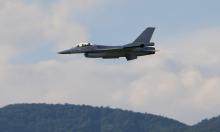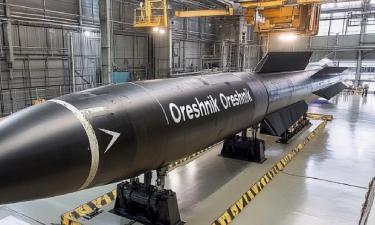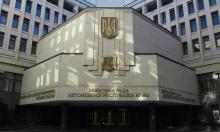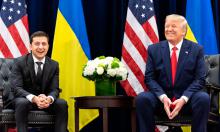North Korean frozen millions to be wired from Macau bank
The long-awaited transfer of disputed North Korean funds frozen in a Macau bank could start as early as Thursday, according to media reports, signaling a breakthrough in a dispute that has held up Pyongyang's pledge to shut down its nuclear reactor.
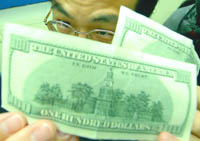
The transfer of the funds at Banco Delta Asia would begin by the end of the business day, Japan's Kyodo News agency said, citing unidentified Macau government authorities.
The money would first go through the New York branch of the U.S. Federal Reserve and then be sent to the Russian central bank before being deposited into a North Korean account at a bank in Russia, Kyodo said.
South Korea's Yonhap news agency, meanwhile, quoted an unnamed senior BDA officials as saying Thursday, "The transfer process will begin either today or tomorrow."
The route Yonhap reported Macau authorities as saying the money would take was nearly identical to that in the Kyodo report, though Yonhap reported the money would first be sent to another bank in Macau before it goes to New York.
There have been numerous reports of progress on the bank dispute that have turned out to be unfounded. However, optimism has grown recently with officials in Washington and Seoul saying the dispute was nearing a solution.
North Korea has refused to move forward on a February pledge to start dismantling its nuclear program until it receives the US$25 million (euro18.8 million) that had been frozen by the Macau bank, which was blacklisted by the United States.
Washington accused the bank of complicity in money laundering by the Pyongyang regime, but gave its blessing for the funds to be freed to win progress on the nuclear issue. While the money has been freed for release, North Korea has not withdrawn it, apparently seeking to prove the funds are now clean by receiving them through an electronic bank transfer.
On Wednesday, the Russian government expressed support for a plan to resolve the dispute by funneling North Korean funds through a Russian bank, and said it was studying legal aspects of the issue.
Japanese conservative newspaper Sankei reported Thursday that the money would go from the Russian central bank to the Far Eastern Commercial Bank, or Dalkombank, which is based in Khabarovsk, where Pyongyang has an account.
Dalkombank spokeswoman Yelena Obydennik said the bank had received no official requests from participants in the six-nation talks and was not involved in any official negotiations on the issue. She refused to reveal whether Pyongyang has accounts in the bank, citing secrecy legislation.
Macau's Monetary Authority spokeswoman Wendy Au declined to comment on the report, but she said that an announcement might possibly be made later Thursday.
Officials at Banco Delta Asia were not immediately available for comment.
Chinese Foreign Ministry spokesman Qin Gang would not confirm the reports that the BDA funds would be transferred soon, but said China wanted the denuclearization process to move forward.
"Our commitment and desire has not changed in this regard," Qin said at a regular news conference Thursday.
U.S. Assistant Secretary of State Christopher Hill, the top American delegate to the North Korean nuclear talks, was traveling to the region and indicated that a transfer was in the works.
"I can go out on a limb and say I am hopeful that we will have some news for you very soon on this," Hill told reporters Wednesday. He said he hoped for news of progress when he arrives in Ulan Bator, Mongolia.
South Korea's foreign minister also said Wednesday in Seoul that the negotiations were nearing their conclusion.
"We are in the final stage of solving the (banking) issue with related countries taking various concrete measures," Song Min-soon said at his weekly press briefing. "But it is too soon to say at exactly what time the issue will be resolved."
The U.S. Treasury Department said Monday that officials were discussing with Russian and Macau authorities a way to transfer the funds. Media reports have said that Russia has acceded to a U.S. request that a Russian bank accept the North Korean money in a transaction with the U.S. Federal Reserve Bank before the cash is moved to North Korea.
Other banks apparently have balked at touching the money. U.S. allegations of money laundering, counterfeiting and other crimes by North Korea, which led to the sequestering of the money, have held the disarmament process in limbo.
Subscribe to Pravda.Ru Telegram channel, Facebook, RSS!


